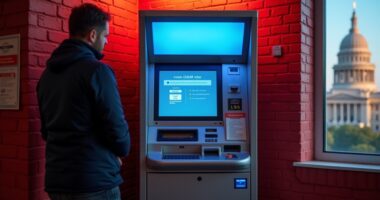The mountain of digital gold now sitting in Uncle Sam‘s virtual vault is finally getting the attention it deserves. This Saturday, government auditors will complete their thorough review of an estimated 198,000 Bitcoin worth a staggering $17.3 billion — the first formal accounting of the federal government’s sprawling cryptocurrency holdings.
The audit arrives just three months after President Trump’s Executive Order established the Strategic Bitcoin Reserve, a move that transformed what was once a hodgepodge of seized assets into a formal national resource. Think of it as the digital equivalent of Fort Knox, except instead of guards with rifles, it’s protected by cryptographic keys and complex custody protocols.
“This is fundamentally the government finally admitting they’ve been sitting on a crypto dragon’s hoard without a proper inventory,” quipped one analyst familiar with the proceedings. The review will examine not just Bitcoin but potentially reveal details about the government’s rumored holdings of other cryptocurrencies including XRP, ADA, ETH, and SOL in the newly formed Digital Asset Stockpile. Critics have pointed out that assets like Solana have experienced over 11 outages, raising questions about their reliability for government reserves.
The audit aims to address a painful historical truth: Uncle Sam has been a terrible crypto trader. Previous sales of 195,000 Bitcoin netted taxpayers just $366 million — assets that would be worth approximately $17 billion today. That’s like selling a beachfront property in Malibu for the price of a used Honda Civic.
Management of these digital assets appears to be consolidating under Department of Justice oversight through their Digital Asset Forfeiture Program, with specialized custody arrangements still being determined. New recommendations call for implementing multi-signature wallet storage to enhance security and reduce single points of failure. The government must navigate an increasingly complex global regulatory landscape as different jurisdictions continue to implement varying approaches to cryptocurrency oversight and compliance. Market watchers note that the formalization removes potential selling pressure and could boost institutional confidence in cryptocurrency markets.
While the government plans no new Bitcoin purchases with taxpayer funds, some analysts put a 30% probability on direct acquisitions in 2025. For now, the focus remains on maximizing value from existing holdings — a welcome change from the fire-sale approach of yesteryear that cost taxpayers billions in unrealized gains.









